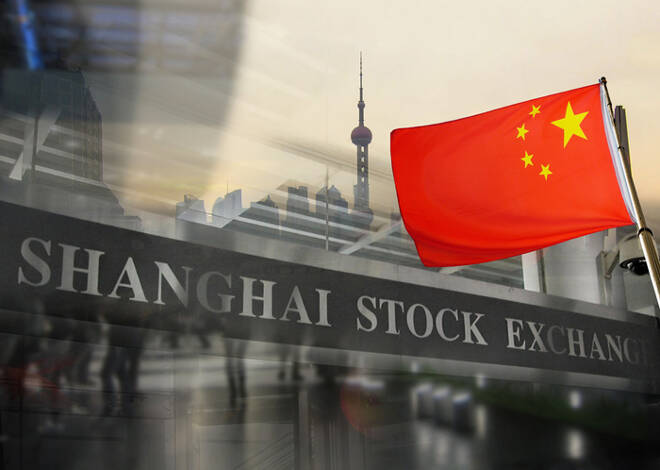Advertisement
Advertisement
Asia-Pacific Stocks Retreat as Second Wave Fears Grows; Chinese Economic Data Misses Expectations
By:
China’s industrial output expanded 4.4% in May from a year earlier but the gain was less than expected, official data showed on Monday.
The major Asia-Pacific stock indexes tumbled on Monday and oil prices trended lower as fears of a second wave of coronavirus infections in Beijing sent investors scurrying for safe-haven assets while underwhelming data from China weighed on investor sentiment.
Monday’s losses follow last week’s volatile sessions which saw the strong rally in global equities since late March, fueled by central bank and fiscal stimulus as countries gradually lifted restrictions put in place to curb the spread of the novel coronavirus, come to a screeching halt.
At 05:00 GMT, Japan’s Nikkei 225 Index is trading 21987.94, down 317.54 or -1.42%. Hong Kong Hang Seng Index is at 24150.85, down 150.53 or -0.62% and South Korea’s KOSPI Index is trading 2115.64, down 16.66 or -0.78%.
China’s Shanghai Index is trading 2919.48, down 0.26 or -0.01%. Australia’s S&P/ASX 200 Index settled at 5804.30, down 43.50 or -0.74%.
The price action suggests investors are being very cautious as they put into perspective that the COVID-19 issue has not been resolved yet.
Risk sentiment took a knock after Beijing recorded dozens of new COVID-19 cases in recent days, all linked to a major wholesale food market. Authorities have closed the center and locked down nearby housing districts.
Meanwhile, investors are also fretting over a spike in cases in the United States where more than 25,000 new cases were reported on Saturday.
Economic Data From China Did Little to Revive Risk Appetite
China’s industrial output expanded 4.4% in May from a year earlier but the gain was less than expected, official data showed on Monday, suggesting the economy is still struggling to get back on track after the coronavirus crisis.
Analysts polled by Reuters had expected growth to quicken slightly to 5.0% from a year earlier as more businesses resumed production, following a rise of 3.9% in April, the first expansion since the virus emerged from China late last year.
Retail sales fell 2.8% on-year, more than a predicted 2.0% decline, but pointing to some signs of recovery in consumer demand after a 7.5% drop in April.
Sales have fallen for four straight months as shops, restaurants and other crowded places closed during the pandemic. Though strict anti-virus measures have been relaxed, consumers remain wary.
Fixed asset investment fell 6.3% in January-May from the same period last year, compared with a forecast 5.9% fall and a 10.3% decline in the first four months of the year.
Private sector fixed-asset investment, which accounts for 60% of total investment, fell 9.6% in January-May, compared with a 13.3% decline in the first four months of the year.
For a look at all of today’s economic events, check out our economic calendar.
About the Author
James Hyerczykauthor
James Hyerczyk is a U.S. based seasoned technical analyst and educator with over 40 years of experience in market analysis and trading, specializing in chart patterns and price movement. He is the author of two books on technical analysis and has a background in both futures and stock markets.
Advertisement
